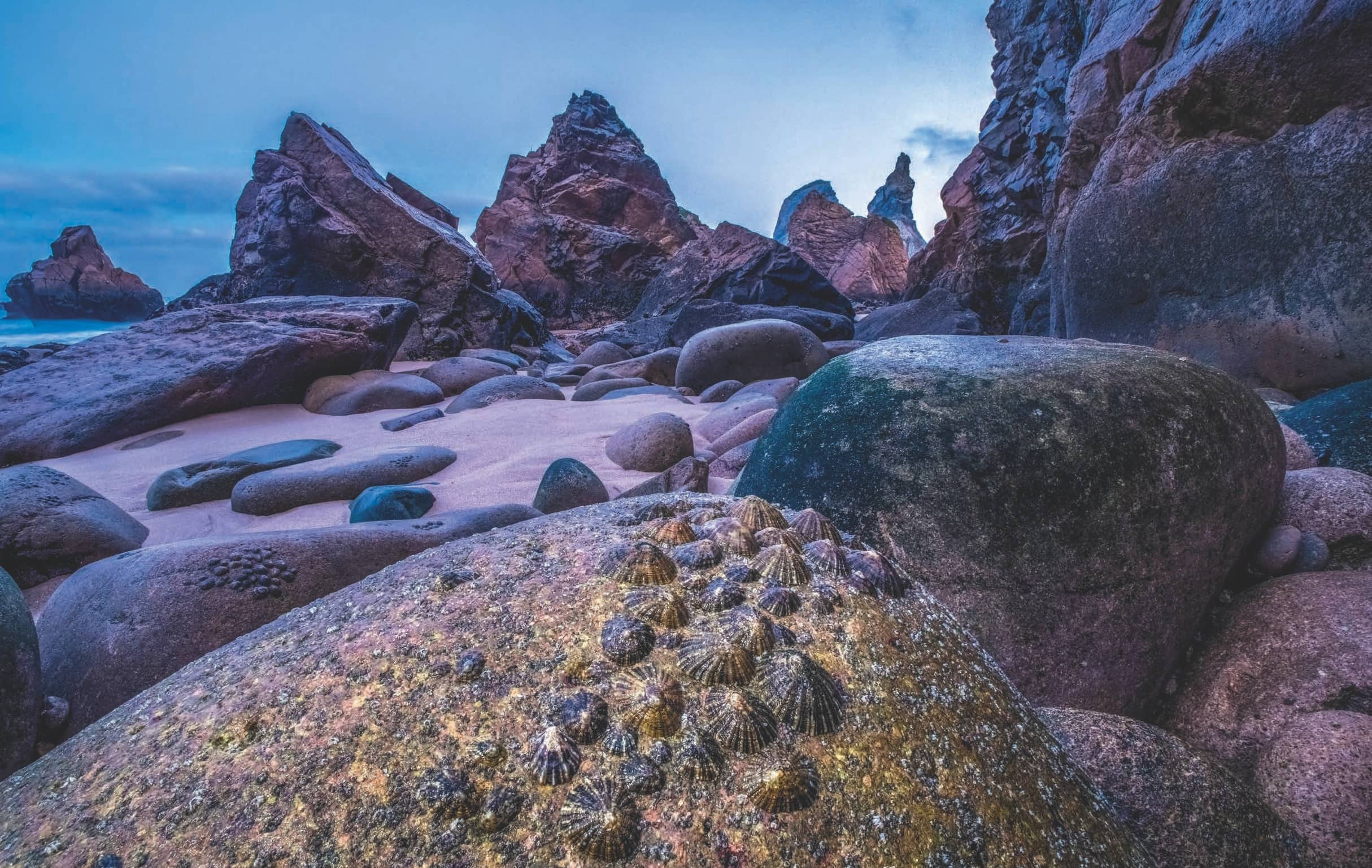There’s more to limpets than meets the eye. From their remarkable homing instinct to body-slamming defence mechanisms and super-strong teeth, these sea snails are amazing creatures

Peer through the waterline in a rockpool and you might see a seashell shaped like a miniature volcano, gliding slowly by. And no matter how familiar you are with the wildlife that lives between the tides, you might still be amazed to see a little head and two tentacles peeping out from under the shell and sweeping from side to side.
Commonly, you’ll see limpets clamped tightly to rocks, often encrusted with barnacles and showing no signs of moving any time soon – almost like they’re part of the rock itself. But if you encounter them when the tide is high, and their world is flooded, these humble beachside molluscs reveal themselves to be far more animated.
As the waters rise, limpets set off in search of food. They spend much of their time roaming around rockpools and wet rocks, rasping at microalgae and seaweed sporelings with a prickly tongue, known as a radula, that’s covered in dozens of tiny, sharp teeth. Imagine a cat licking a bowl of frozen milk. Were you to have a stethoscope to hand and place it on a rock nearby, you might be able to make out an intermittent, sandpapery scratching as each limpet gathers its food. Even if you don’t spot limpets out and about, you can see the tell-tale trails they leave behind, in the artistic zigzag marks they scrape into green films on the rocks.
DEALING WITH DANGER
And if you’re lucky enough to time your rockpool visit with the arrival of an aquatic predator, such as a starfish or whelk, you might witness a surprising scene unfold. Sensing danger is near, a limpet won’t immediately clamp down and hide inside its shell. Instead, it uses its muscular foot to push the shell skywards until it looks like a mushroom, which is why biologists call this behaviour ‘mushrooming’.
This story is from the February 2019 edition of BBC Earth.
Start your 7-day Magzter GOLD free trial to access thousands of curated premium stories, and 8,500+ magazines and newspapers.
Already a subscriber ? Sign In
This story is from the February 2019 edition of BBC Earth.
Start your 7-day Magzter GOLD free trial to access thousands of curated premium stories, and 8,500+ magazines and newspapers.
Already a subscriber? Sign In

World's First Malaria Vaccine
The World Health Organization’s director-general hails ‘historic moment’ as mass immunisation of African children begins

Is River Pollution Putting The Species In Jeopardy Again?
Ten years ago, it was jubilantly announced that o ers had returned to every county in England. But is river pollution putting the species in jeopardy again?

The Big Burnout
Long hours, low pay and a lack of appreciation — among other things — can make for a stressful workplace and lead to burnout. It’s something we should all be concerned about, because over half of the workforce reports feeling it

Putting Nature To Rights
More countries are enshrining the right to a clean environment into law. So if a company or government is impinging upon that right, you could take them to court

Mega Spaceship: Is It Possible For China To Build A Kilometre-Long Spacecraft?
Buoyed on by its successful Moon missions, China has launched a five-year study to investigate the possibility of building the biggest-ever spacecraft

Are We Getting Happier?
Enjoying more good days than bad? Feel like that bounce in your step’s getting bigger? HELEN RUSSELL looks into whether we’re all feeling more cheery…

“Unless the Japanese got the US off their backs in the Pacific, they believed they would face complete destruction”
Eighty years ago Japan’s surprise raid on Pearl Harbor forced the US offthe fence and into the Second World War. Ellie Cawthorne is making a new HistoryExtra podcast series about the attack, and she spoke to Christopher Harding about the long roots of Japan’s disastrous decision

Your Mysterious Brain
Science has mapped the surface of Mars and translated the code for life. By comparison, we know next to nothing about what’s between our ears. Over the next few pages, we ask leading scientists to answer some of the most important questions about our brains…

Why Do We Fall In Love?
Is it companionship, procreation or something more? DR ANNA MACHIN reveals what makes us so willing to become targets for Cupid’s arrow

Detecting the dead
Following personal tragedy, the creator of that most rational of literary figures, Sherlock Holmes, developed an obsession with spiritualism. Fiona Snailham and Anna Maria Barry explore the supernatural interests of Sir Arthur Conan Doyle